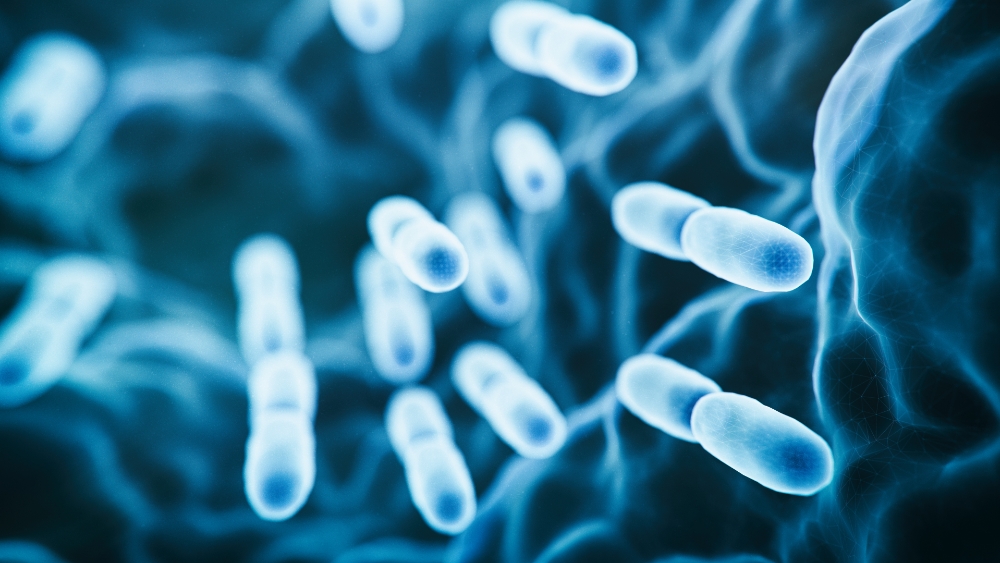
Researchers supported by NIH have found that SARS-CoV-2 reduces the diversity of microbes in the gut microbiome and changes the gut lining to make blood infections more likely.

Researchers supported by NIH have found that SARS-CoV-2 reduces the diversity of microbes in the gut microbiome and changes the gut lining to make blood infections more likely.
What you need to know
A dynamic ecosystem of microorganisms called a microbiome lives inside of your gut. This ecosystem includes a wide variety of bacteria that perform many helpful functions, such as helping with digestion, destroying harmful bacteria, and supporting the immune system. When something causes a change to the gut microbiome, it can make you sick.
Research has shown that people who are hospitalized with COVID-19 often have changes in their gut microbiomes. They are also more vulnerable to dangerous bacterial infections, but the exact cause of and connection between those problems was not known.
In a study supported by several NIH institutes, researchers found that COVID-19 harms the gut microbiome. They also found that SARS-CoV-2 infection can change the gut lining in a way that allows dangerous bacteria to enter the bloodstream and cause additional infections.
What did the researchers do?
First, the researchers studied mouse models for COVID-19 to understand what happens to the gut microbiome during SARS-CoV-2 infection. They analyzed mouse feces to measure how many kinds of bacteria lived in the gut, then looked for evidence of gut microbes in other parts of the body. They also studied stool samples from nearly 100 patients with COVID-19.
What did the researchers learn?
The researchers found that SARS-CoV-2 infection reduced the diversity of bacteria in the gut microbiome. This allows harmful microbes like opportunistic or antibiotic-resistant bacteria to overgrow.
The lining of the gut was also changed in a way that allowed those harmful bacteria to enter the bloodstream and reach other organs, potentially causing additional infections. The mice with the most severe cases of COVID-19 had the most affected gut microbiomes and linings.
When they analyzed stool samples from patients with COVID-19 in hospitals, the researchers found results similar to the samples from mice: low diversity in the gut microbiome, especially in patients with blood infections.
Why is this research important?
This research suggests that SARS-CoV-2 can damage the gut microbiome and increase the risk of secondary infections. These findings can help health care providers protect patients with COVID-19 who have the highest risk of blood infection, such as patients with cancer.
Where can I go to learn more?
COVID-19 disrupts gut microbiome
-
An article in NIH Research Matters explains the results of a study on COVID-19 and the gut microbiome.
-
The National Heart, Lung, and Blood Institute (NHLBI) shares information on how COVID-19 can affect the blood.
Blood Donation Guidelines Get the Green Light
-
Research supported by NHLBI shows that the nation’s blood supply is safe from SARS-CoV-2.
Sources
Bernard-Raichon, L., Venzon, M., Klein, J., Axelrad, J. E., Zhang, C., Sullivan, A. P., Hussey, G. A., Casanovas-Massana, A., Noval, M. G., Valero-Jimenez, A. M., Gago, J., Putzel, G., Pironti, A., Wilder, E., Yale IMPACT Research Team, Thorpe, L. E., Littman, D. R., Dittmann, M., Stapleford, K. A., … & Schluter, J. (2022). Gut microbiome dysbiosis in antibiotic-treated COVID-19 patients is associated with microbial translocation and bacteremia. Nature Communications, 13, 5926. https://doi.org/10.1038/s41467-022-33395-6
 An official website of the United States government
An official website of the United States government
